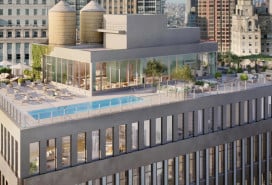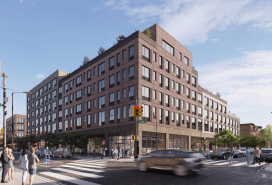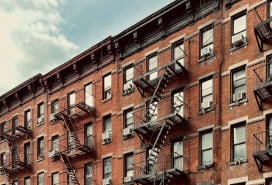Ask an Expert: Is it ever safe to buy in a landlease building?

Q: Is it ever safe to buy in a building with a landlease? For instance, what if it still has 60+ years to go—what is the downside?
A. If you’re considering buying into a building that does not own the ground it sits on, you need to consider three things: The number of years until the lease is up for renewal, how much the rent may increase in the meantime, and whether the building has an option to buy the land someday, explains real estate attorney Eric Goidel.
“As the lease nears the end of its term, say within the last 30 years, the banks will not be interested in lending to the cooperative or to owners of apartments in the building,” says real estate lawyer Steven Wagner of Wagner Berkow.
Further reducing resale potential, a landleased building’s diminished ability to borrow money for repairs and improvements can result in substantial assessments, notes real estate lawyer Robert Braverman.
“Buyers will be nervous,” says real estate broker Deanna Kory. “Even if it is 60 years out, there are often land rent increases and then very low tax deductibility.”
Ground leases that provide for predictable periodic rent increases are definitely preferable over those that don’t, says Jeffrey Reich, a real estate lawyer. If not, apartment owners are frequently subject to large, unexpected carrying cost increases.
“If being ‘safe’ means that the reader would like to eliminate all of the additional risk of a leasehold cooperative, the answer is that the risks cannot be eliminated or ignored,” says Wagner. “However, there are many leasehold cooperatives with leases that extend far into the future and do not pose a substantial risk to a purchaser. I have yet to hear of a leasehold cooperative being ‘evicted.’”
On the positive side, notes Kory, “the price is super low.”
Stephen Kliegerman, the executive director of development marketing at Halstead, points to a new condo project, 88 Morningside Avenue in Harlem, being marketed by his firm. It was developed on land owned by a church that refused to sell.
“The developer entered into a 99-year-lease with a 99-year renewal at a stable 1% per year rent increase, which allowed the developer to build the building and offer parkside homes at reasonable prices which would not ever have been built if not for a landlease,” says Kliegerman.
Trouble at home? Get your NYC apartment-dweller questions answered by an expert! Send us your questions.
Related posts:



























